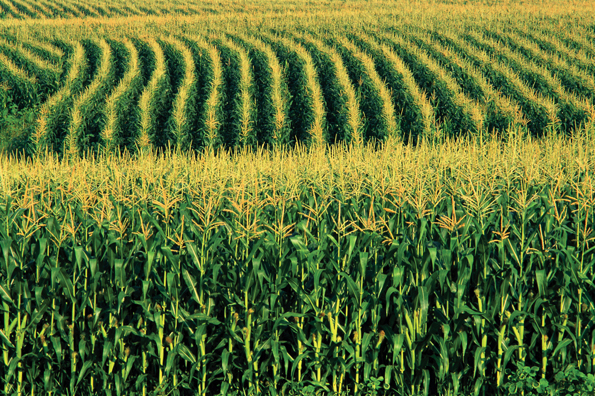Upcoming events:
May 8: Field Scout Training, Reg. 8 a.m., ENREC (former ARDC) near Mead, https://enre.unl.edu/crop.
May 13: Recovering River Front Pastures and Rangeland, 1:30 p.m., park at McAuliff Farms at 41465 325th Road south of Ravenna. 308-696-6710 or jerry.volesky@unl.edu
May 18: Advanced Pest and Pathogen Beekeeping Class, 9 a.m.-4 p.m., ENREC (former ARDC near Mead)
May 20: CSI for Youth: Beginning season scouting, 5 p.m., RSVP jrees2@unl.edu
May 20: Ag Land Management Webinar, 6 p.m., Register: https://agecon.unl.edu/landmanagementMay 20-21: Tractor Safety Training, Fairgrounds, Geneva, (402) 759-3712, https://go.unl.edu/mcyyMay 22-23: Tractor Safety Training, Fairgrounds, Nelson, (402) 225-2092, https://go.unl.edu/mcyyMay 28-29: Tractor Safety Training, Extension Office, Grand Island, (308) 385-5088, https://go.unl.edu/mcyy
May 30: Made in the Shade-Trees for Nebraska Landscapes, 6-7:30 p.m., 4-H Bldg-Fairgrounds, York, RSVP: (402) 441-7180May 30-31: Tractor Safety Training, Extension Office, Kearney, (308) 236-1235, https://go.unl.edu/mcyy
May 31: Introductory Hop Growing Workshop, 3:30-5 p.m., 199 Plant Sciences Hall, UNL East Campus, Lincoln, RSVP: 402-472-2811
May 31: Hop Training Field Program, 5-6 p.m., 199 Plant Sciences Hall, UNL East Campus, Lincoln, RSVP: 402-472-2811
Crop Update: Every year provides ample opportunities to learn, and this year will be no different. We’ll learn a lot in the next few weeks with corn/soybean germination and emergence and the cold tolerance of seed. Grateful for the planting that’s been accomplished thus far! Some rainfall hopefully is providing a much needed break for some and could also help with the dry seed bed and crusting concerns with some fields.
I’ve seen information going around regarding delayed planting and changing to early relative maturities for corn. The concern is regarding frost occurring before the crop reaches black layer. We’re honestly too early for that conversation until we hit early June, but that may be a reality in portions of the State. When looking at the number of GDDs to Black Layer, it’s important to ask your seed company if that number is based on ‘from planting’ or ‘from emergence’. Bob Nielsen, Extension Specialist at Purdue, found from research conducted in the early 2000’s that when hybrids were planted late, they matured in fewer growing degree days (GDDs) than predicted. In their research, Bob and his team found that hybrids matured around 6.8 fewer GDDs for every day planted after May 1. This continued through the second week of June and they didn’t evaluate planting dates beyond then. He gives the example, “a hybrid rated at 2700 GDDs from planting to physiological maturity (kernel black layer) and planted on May 31 reaches physiological maturity in less than 2500 GDDs after planting (e.g., 2700 – (30 days x 6.8)).” Roger Elmore, Nebraska Extension Cropping System Specialist, put this in perspective in an older CropWatch article, “A 115 CRM hybrid (2782 GDD) planted on May 15 would behave like a 111 CRM hybrid and when planted on May 30 it would behave like a 107 CRM (2578 GDD) hybrid. If planted on May 30 this hybrid should mature around September 14 in southeast and southern Nebraska and around September 27 in central and northeast Nebraska.” So hopefully this is helpful with the upcoming weather forecast potentially delaying getting back into the fields. Bob does have a calculator at the following site which provides an estimated GDD adjustment when you plug in the GDDs of your current hybrids and your expected planting date: https://www.agry.purdue.edu/ext/corn/news/timeless/HybridMaturityDelayedPlant.html.
Renovating Flooded Pastures Workshop: After spring flooding, many river frontage pastures and crop fields were left with sand and silt deposits ranging from a few inches to up to three feet. Recovering that land for production will be the focus of a May 13 on-site workshop near Ravenna at 1:30 p.m. Jerry Volesky, Extension range and forage specialist, will discuss treatments and practices to aid land recovery. Participants are invited to park at McAuliff Farms at 41465 325th Road south of Ravenna. A tractor and trailer will transport attendees to the workshop location, where there are heavy deposits of sand and silt from flooding of the nearby South Loup River. For more information, contact Volesky at 308-696-6710 or jerry.volesky@unl.edu or the program sponsor, Town and County Bank at 308-452-3225.
Tree and Lawn Care Programs for York and Seward Counties: Two upcoming tree/lawn care will be held in York and Seward Counties. Sarah Browning, Nebraska Extension Educator, will be presenting the programs. There is no charge but please RSVP to (402) 441-7180 to attend either or both programs.
- “Made in the Shade: Trees for Nebraska’s Landscapes” will be held on May 30th from 6-7:30 p.m. at the 4-H Building at the Fairgrounds in York. Trees are the backbone of our landscapes, providing beauty, shade, noise reduction, wildlife habitat, and reduce home heating and cooling costs. In this program, learn how to keep your trees healthy and vigorous. We’ll also discuss tree species well-adapted to Nebraska’s challenging growing environment.
- “Troubleshooting the Landscape” will be held on June 5th from 6-7:30 p.m. at the Civic Center in Seward. Learn how to better manage these common problems in your landscape: Emerald Ash Borer, Weed control in lawns and landscapes, Summer and fall lawn care, and Pruning trees and shrubs.

































